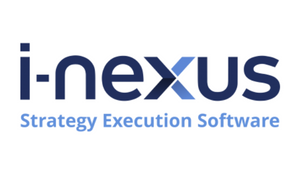










































Discover the key benefits and strategies for successful digital business transformation.
-1.png?width=600&height=350&name=COMPANY%20LOGO%20(52)-1.png)
Digital business transformation refers to the process of using digital technologies to fundamentally change the way a business operates and delivers value to its customers. It involves leveraging digital tools and strategies to improve efficiency, enhance customer experience, and drive innovation. By embracing digitalization, businesses can unlock new opportunities and stay competitive in today's fast-paced, technology-driven world.
To understand digital business transformation, it is important to recognize the impact of digital technologies on various aspects of a business. This includes areas such as operations, marketing, sales, customer service, and supply chain management. Digitalization enables businesses to automate processes, collect and analyze data, improve collaboration, and create personalized experiences for customers. It allows companies to streamline operations, reduce costs, and gain a deeper understanding of their target audience.
Furthermore, digital business transformation involves a shift in mindset and culture. It requires organizations to embrace change, foster a culture of innovation, and invest in the necessary skills and resources. This may involve training employees, hiring digital experts, and adopting agile methodologies. By creating a digital-first mindset, businesses can adapt to evolving market conditions, anticipate customer needs, and drive growth.
Digitalization offers numerous benefits for businesses of all sizes and industries. One of the key advantages is improved efficiency. By automating manual processes and implementing digital tools, businesses can streamline operations, reduce errors, and save time. This allows employees to focus on more strategic tasks and deliver better results.
Another benefit of digitalization is enhanced customer experience. With digital technologies, businesses can personalize interactions, provide self-service options, and offer seamless omnichannel experiences. This not only improves customer satisfaction but also increases loyalty and drives repeat business.
Digitalization also enables businesses to gain insights from data. By collecting and analyzing data from various sources, companies can make informed decisions, identify trends, and uncover new opportunities. This data-driven approach helps businesses stay ahead of the competition and make proactive adjustments to their strategies.
Additionally, digitalization opens up new avenues for innovation and growth. By leveraging emerging technologies such as artificial intelligence, machine learning, and Internet of Things, businesses can develop new products, services, and business models. This allows them to enter new markets, attract new customers, and stay relevant in a rapidly changing landscape.
Overall, digitalization empowers businesses to become more agile, efficient, and customer-centric. It enables them to adapt to changing market dynamics, seize opportunities, and drive growth.
To ensure successful digital business transformation, organizations need to adopt the right strategies and approaches. Here are some key strategies to consider:
1. Set clear goals and objectives: Define what you want to achieve through digital transformation. This could include improving operational efficiency, enhancing customer experience, or driving innovation. Setting clear goals helps align efforts and measure progress.
2. Develop a comprehensive digital strategy: Create a roadmap that outlines the steps and initiatives required to achieve your goals. This should include a plan for technology implementation, resource allocation, and change management.
3. Foster a culture of innovation: Encourage employees to embrace change, experiment with new ideas, and challenge the status quo. Create an environment that supports innovation and rewards creativity.
4. Invest in the right technology: Identify the digital tools and technologies that align with your business goals. This could include cloud computing, data analytics, artificial intelligence, or customer relationship management systems. Choose technology partners that can support your transformation journey.
5. Empower employees with digital skills: Provide training and resources to help employees develop the necessary digital skills. This includes both technical skills and digital literacy. Foster a continuous learning culture.
6. Collaborate with external partners: Engage with technology vendors, industry experts, and other organizations to gain insights and leverage best practices. Collaborating with external partners can accelerate your transformation efforts and bring in fresh perspectives.
7. Monitor and measure progress: Regularly assess the impact of your digital transformation initiatives. Measure key performance indicators, gather feedback from stakeholders, and make adjustments as needed. Continuously iterate and improve your digital strategy.
By implementing these strategies, businesses can navigate the complexities of digital transformation and achieve long-term success.
While digital transformation offers significant benefits, it also comes with its own set of challenges. Here are some common challenges and how to overcome them:
1. Resistance to change: Digital transformation often requires a shift in mindset and culture. Some employees may resist change and prefer traditional ways of doing things. To overcome this, it is important to communicate the benefits of digitalization, involve employees in the transformation process, and provide training and support.
2. Lack of digital skills: Many organizations face a shortage of digital talent. To address this challenge, invest in employee training and development programs, collaborate with educational institutions, and consider hiring external experts or consultants.
3. Data privacy and security: With the increasing use of digital technologies, data privacy and security become critical concerns. To mitigate risks, implement robust security measures, comply with data protection regulations, and educate employees about best practices for data handling.
4. Legacy systems and infrastructure: Integrating digital tools and technologies with existing systems and infrastructure can be complex. To overcome this challenge, develop a phased approach to implementation, prioritize integration projects, and consider cloud-based solutions that offer scalability and flexibility.
5. Lack of strategic alignment: Digital transformation initiatives should align with the overall business strategy. Lack of alignment can lead to fragmented efforts and limited impact. To address this, involve key stakeholders in the planning process, establish clear objectives, and regularly communicate progress and outcomes.
By proactively addressing these challenges, businesses can minimize disruptions and maximize the benefits of digital transformation.
In today's digital age, embracing digitalization is no longer a choice but a necessity for businesses. It has become a key driver of competitive advantage and business success. Here are some reasons why embracing digitalization is crucial:
1. Stay ahead of the competition: Digitalization allows businesses to stay ahead of the competition by leveraging technology to innovate, improve efficiency, and deliver better customer experiences. It enables companies to differentiate themselves in the market and attract and retain customers.
2. Enhance customer experience: Customers today expect seamless, personalized experiences across all touchpoints. Digitalization enables businesses to meet these expectations by providing self-service options, personalized recommendations, and real-time support. By delivering exceptional customer experiences, businesses can build strong relationships and foster customer loyalty.
3. Drive innovation: Digitalization opens up new possibilities for innovation. By leveraging technologies such as artificial intelligence, machine learning, and data analytics, businesses can develop new products, services, and business models. This allows them to enter new markets, create new revenue streams, and drive growth.
4. Improve operational efficiency: Digitalization automates manual processes, reduces errors, and improves efficiency. It enables businesses to streamline operations, optimize resource allocation, and reduce costs. By digitizing workflows and eliminating redundancies, businesses can achieve greater operational efficiency and productivity.
5. Access to data-driven insights: Digitalization allows businesses to collect and analyze vast amounts of data. This data can provide valuable insights into customer behavior, market trends, and business performance. By leveraging data-driven insights, businesses can make informed decisions, identify opportunities, and mitigate risks.
In conclusion, embracing digitalization is essential for businesses to thrive in today's digital landscape. It offers numerous benefits, from improved efficiency and customer experience to driving innovation and gaining a competitive edge. By understanding the power of digital business transformation and implementing the right strategies, businesses can unlock growth opportunities and stay ahead of the curve.
Case Studies: Successful Business Transformation Driven by Thought Leaders
Real-world case studies serve as valuable examples of successful business transformation driven by thought leaders. By attending BTOES.com, you will have the opportunity to learn from these case studies and gain insights into the strategies, approaches, and outcomes of successful business transformation initiatives.
These case studies will showcase how thought leaders have navigated challenges, mobilized stakeholders, developed and executed business transformation plans, and achieved sustainable change. By understanding these real-world examples, organizations can gain inspiration, learn from best practices, and adapt successful strategies to their own business transformation journeys.
View our schedule of industry leading free to attend virtual conferences. Each a premier gathering of industry thought leaders and experts sharing key solutions to current challenges.
View Schedule of EventsWelcome to BTOES Insights, the content portal for Business Transformation & Operational Excellence opinions, reports & news.
-------------------------------------------------------
Search for anything
Insights from the most progressive thought leaders delivered to your inbox.
Insights from the world's foremost thought leaders delivered to your inbox.
Being a hero is all about creating value for others. Please invite up to 5 people in your network to attend this premier virtual conference, and they will receive an invitation to attend.
If it’s easier for you, please enter your email address below, and click the button, and we will send you the invitation email that you can forward to relevant people in your network.
View our schedule of industry leading free to attend virtual conferences. Each a premier gathering of industry thought leaders and experts sharing key solutions to current challenges.
View Schedule of EventsWatch On-Demand Recording - Access all sessions from progressive thought leaders free of charge from our industry leading virtual conferences.
Watch On-Demand Recordings For FreeDelivered by the industry's most progressive thought leaders from the world's top brands. Start learning today!
View All Courses NowThe premier Business Transformation & Operational Excellence Conference. Watch sessions on-demand for free. Use code: BFH1120
Watch On-DemandInsights from the most progressive thought leaders delivered to your inbox.
Insights from the world's foremost thought leaders delivered to your inbox.
Being a hero is all about creating value for others. Please invite up to 5 people in your network to also access our newsletter. They will receive an invitation and an option to subscribe.
If it’s easier for you, please enter your email address below, and click the button, and we will send you the invitation email that you can forward to relevant people in your network.
Courtesy of Nintex Pty's Paul Hsu, below is a transcript of his speaking session on 'Improve employee productivity during and post-COVID by ...
Read this article about HP, Best Achievement in Operational Excellence to deliver Digital Transformation, selected by the independent judging panel, ...
Read this article about BMO Financial Group, one of our finalists, in the category Best Achievement in Operational Excellence to deliver Digital ...
Read this article about Cisco, one of our finalists, in the category Best Achievement of Operational Excellence in Internet, Education, Media & ...









































































































































































































